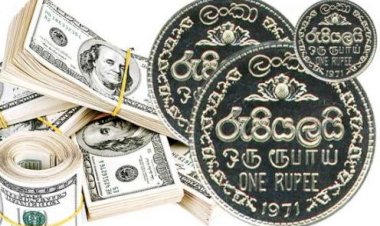Sri Lanka Parliament passes bill to regulate online content

Sri Lanka’s Parliament on Wednesday passed a bill to regulate online content, sparking criticism from rights groups and opposition politicians that the government is trying to crack down on dissent and stifle freedom of speech ahead of parliamentary and presidential elections this year.
The measure was passed on Wednesday by a 108-62 vote, the speaker announced.
The Online Safety Bill proposes jail terms for posting content that a five-member commission considers illegal and makes social media platforms such as Google, Facebook and X liable for messages on their platforms.
President Ranil Wickremesinghe’s government said the bill, presented to the legislature just one day before Wednesday’s vote, was aimed at battling cybercrimes, including child abuse, data theft and online fraud.
The secretary of the Sri Lanka Professional Web Journalists Association, Kalum Shivantha, said the bill would severely impact how they do their job. "Online journalists might resort to self-censorship and even our news websites might get shut down,” he said.
However, Public Security Minister Tiran Alles who introduced the bill in Parliament said it would address problems related to online fraud, abuse and false statements that threaten national security and stability. He said more than 8,000 complaints were filed last year related to online crimes, including sexual abuse, financial scams, cyber harassment, and data theft.
“It is not to suppress the media or the opposition. … Any complaint will be taken up by the commission, who will be appointed by the president, and they will decide how to act,” Alles said.
Harsha de Silva, a lawmaker from the main opposition Samagi Jana Balawegaya, told parliament the legislation was “a threat to our democracy”.
“This will have a severe negative impact on expanding e-commerce in Sri Lanka, to provide jobs to our youth and help our economy, which is in desperate need of growth.”
Human Rights Watch criticised the bill, warning that members of the Online Safety Commission would have arbitrary powers to “decide what online speech is ‘false’ or ‘harmful’, remove content, restrict and prohibit internet access, and prosecute individuals and organizations”.
Offenses under the bill carry hefty fines and prison sentences of up to five years, the international rights group said
The Asian Internet Coalition (AIC), which has Apple, Amazon, Google and Yahoo as members, warned that the bill was a “draconian system to stifle dissent”, and said it “could undermine the potential growth of Sri Lanka’s digital economy”.
“We unequivocally stand by our position that the Online Safety Bill, in its current form, is unworkable and would undermine potential growth and foreign direct investment into Sri Lanka’s digital economy,” the AIC said in a statement.




 mode1
mode1 






































